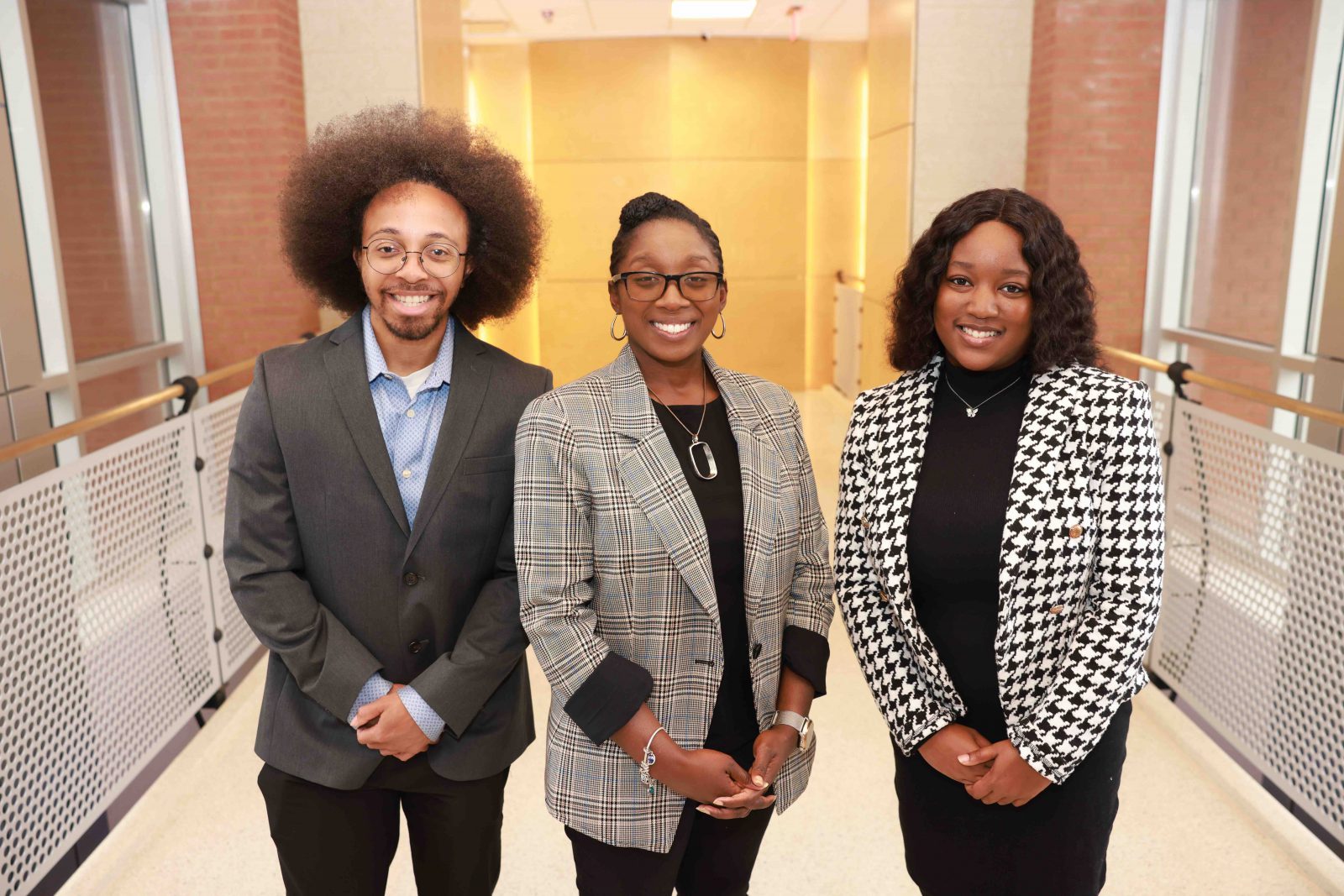By William H. Kelly III
THEE Aristocrats STEM and Health Sciences Program at Jackson State University (JSU) attended the National Space Grant Directors Meeting in Honolulu, Hawaii, hosted by the National Aeronautics and Space Administration’s (NASA) National Space Grant College and Fellowship Project. JSU students Jordan Brown and Brandon Fisher joined Noel Gardner, Ph.D., director of THEE Aristocrats STEM and Health Sciences Program, for five days of development and discovery.
In September, Brown and Fisher presented research special to their respective areas during roundtable discussions featuring rocket scientists, astronomers, lava scientists, and more.
“I presented information about perovskite solar cells incorporating methylammonium lead iodide, or MAPbI3, such as using them for renewable energy and solar panels, and showing the fabrication process as well,” said Brown, a junior biomedical science major. “Experiencing this opportunity was enlightening, eye-opening, and very informative. I was able to connect with different people outside of chemistry and understand how my research contributes to NASA.”
Brown studied and conducted research with JSU Associate Professor of Physics Qilin Dai, Ph.D., leading up to the director’s meeting, while Fisher joined JSU Professor of Computer Engineering Kamal Ali, Ph.D.
“I presented information that focused on electroencephalogram data analysis, or EEG. The research that we conducted focuses on extracting meaningful patterns that offer insights into the complex interplay between brain activity and emotions,” said Fisher, a senior electrical engineering student.
NASA initiated the National Space Grant College and Fellowship Project, also known as Space Grant, and includes over 850 national affiliates from universities, colleges, industry, museums, science centers, and state and local agencies. The meeting brings together affiliates belonging to one of 52 consortia in all 50 states, the District of Columbia and the Commonwealth of Puerto Rico.
The Space Grant provides opportunities for Americans to participate in NASA’s aeronautics and space projects by enhancing science and engineering education, research and public outreach efforts.
“I am pleased to serve and help them navigate this portion of their lives and to assist them while they matriculate at Jackson State into the workforce or graduate or professional school,” said Gardner, who serves as JSU’s NASA Mississippi Space Grant Consortium coordinator.
“Conferences like this one and many others that the Aristocrat students attend are meant to give students the exposure that is needed before entering the workforce or graduate and professional schools.”
The Mississippi Space Grant Consortium (MSSGC) is a statewide non-profit organization of institutions of higher learning coordinated by the Mississippi Research Consortium and funded by the NASA Office of STEM Engagement. The consortium aims to enhance and support aerospace science and technology efforts and activities in Mississippi and promote a strong science, mathematics, and technology base at pre-college, undergraduate, and graduate levels in the region’s educational institutions.
Brown and Fisher were able to travel to Hawaii thanks to the Aristocrats program and the fellowships and scholarships offered by the 52 consortia. These fellowships and scholarships help to support students pursuing careers in science, mathematics, engineering and technology, as well as curriculum enhancement and faculty development.

